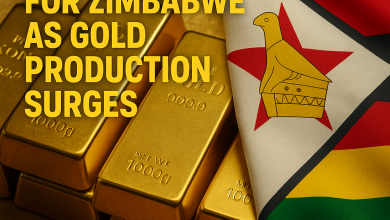Bulawayo Police Nab Armed Robbery Syndicate in Major Crackdown

Bulawayo, Zimbabwe — December 2024
In a significant victory against crime, the Zimbabwe Republic Police (ZRP) has successfully dismantled a seven-member armed robbery syndicate responsible for a spate of violent crimes in Bulawayo. This operation, hailed as a breakthrough, underscores law enforcement’s commitment to curbing armed crime in the city and beyond.
Details of the Operation
The arrests followed weeks of intelligence gathering and surveillance. According to police spokesperson Assistant Commissioner Paul Nyathi, the suspects were apprehended in a coordinated raid executed by a specialized unit.
“The arrested individuals were part of an organized group that had been targeting businesses, service stations, and residential areas,” Nyathi stated. “They have been linked to multiple armed robberies involving cash, electronics, and other valuables.”
Recoveries and Charges
During the operation, police recovered firearms, including AK-47 rifles and pistols, alongside stolen property. Preliminary investigations indicate that the syndicate was involved in robberies across several locations, with loot amounting to thousands of dollars. The suspects are set to face charges of armed robbery, illegal possession of firearms, and conspiracy to commit robbery.
Community Reactions
Residents of Bulawayo have expressed relief following the arrests. “We’ve been living in fear due to the increase in violent crimes,” said a resident of Cowdray Park. “This success by the police gives us hope for restored safety in our neighborhoods.”
ZRP’s Call for Vigilance
The ZRP has urged the public to remain vigilant and report suspicious activities. Assistant Commissioner Nyathi emphasized the importance of community-police collaboration, stating, “Fighting crime requires collective effort. We encourage citizens to share any information that may assist in apprehending more criminals.”
A Broader Crackdown on Armed Robberies
This operation is part of a nationwide crackdown on organized crime. Armed robberies have been a growing concern, with police records indicating a notable increase in cases involving sophisticated weaponry. Authorities have pledged to intensify efforts to dismantle criminal networks.
Key Takeaways
The arrests mark a significant step in addressing armed crime in Bulawayo. With the suspects in custody and investigations ongoing, the ZRP has reaffirmed its commitment to ensuring public safety and maintaining law and order.




